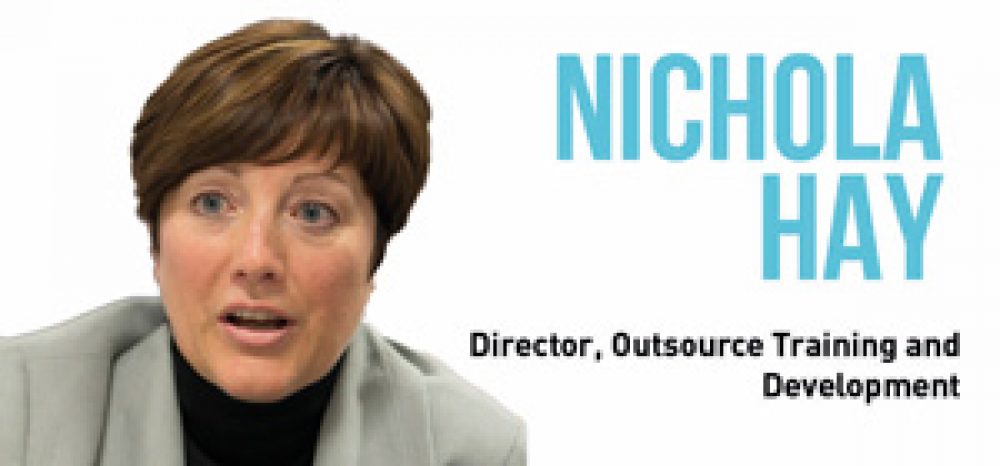Government should expect quality from the skills programmes it funds, but the National Achievement Rate Tables are not the only measure, argues Nichola Hay
This week’s FE Week contains a full analysis of the government’s newest National Achievement Rate Tables 2015-16 for apprenticeships and education and training.
Our own company shows a 19 per cent decline in its achievement rate from the previous year, but I would argue taking that figure in isolation as an indicator of quality is dangerous, and I believe there may be other providers identified in the analysis who have good reason to feel the same.
In February of this year, as part of an overall grade two judgment, inspectors from Ofsted found that Outsource Training and Development was “ensuring good assessment practice which promotes a consistently high standard of apprentices’ skills. The quality of teaching and learning remains good.”
They also said that “your data indicates successfully reversing a short-term decline in apprentices’ achievement”.
This shows that while data will always be an important starting point that might prompt a need for further investigation, it is Ofsted inspections and ESFA risk reviews which should be the ultimate arbiters of a provider’s quality. Our NART numbers took a short-term hit because under the QAR data, learner transfers count negatively as leavers.
Headline data on its own cannot tell the whole story
In 2015-16 Outsource had two cohorts of learners who were transferred for reasons that were taken in learners’ interests – even though they negatively affected our provider data.
In the first case, both the ESFA and an employer asked us to take on a group of engineering apprentices even though we don’t operate in the sector.
We engaged a third party to carry out the technical delivery and an engineering assessor to do the assessment. When the third party was ready, the apprentices were transferred to that provider, but in the process, we were penalised in our QAR data.
The second case involved a contract that the employer put out to competitive tender. We were not prepared to deliver without a realistic employer contribution so withdrew from the contract. We worked closely with the incoming provider to transfer existing learners, ensuring that the learners were not disadvantaged and there was a seamless transition.
Ofsted looked at both cases and talked to the employers and learners involved. It agreed with us that when the transfer data was ‘removed’, Outsource’s QAR was above the national average. It accepted that the right action had been taken for learners – and for the right reasons, not just ESFA box-ticking.
This clearly shows that headline data on its own cannot tell the whole story – there is context for every cohort. There are also frameworks that always have high national success rates irrespective of provider, due to the nature of the sector and learner.
We want every apprentice from varying backgrounds of prior attainment to succeed across different sectors and levels. An individual provider’s QAR can be made up by a mix of apprenticeships, which is why AELP is asking Ofsted to consider national benchmarks for each standard and framework.
Rule changes this year for the data, particularly in respect of breaks in learning, have muddied the picture. It’s true that in some cases, BIL can disguise a poor success rate and it is right those providers should be challenged. However in many cases, there are valid reasons for a decrease in the rate, and we are seeing Ofsted’s risk-review approach identify providers where inspectors have subsequently gained a clear understanding of why the data has shifted.
NART must not deter providers and employers from delivering challenging standards or recruiting disadvantaged learners, e.g. without English and maths, or from difficult backgrounds. Otherwise we will end up with a narrow range of on-paper high-quality apprenticeships that fail to fulfil what UK industry needs, and a higher set of barriers for those individuals who will need training most in a post-Brexit Britain.
The country should expect a lot from government-funded skills programmes, but we should have the right measures with the right understanding. NART can only ever offer a starting point.
Nichola Hay is director of Outsource Training and Development








Your thoughts